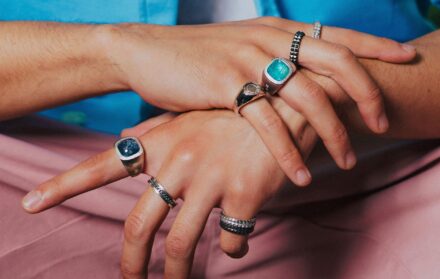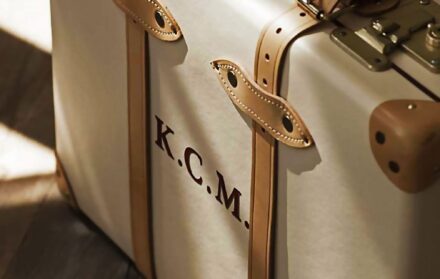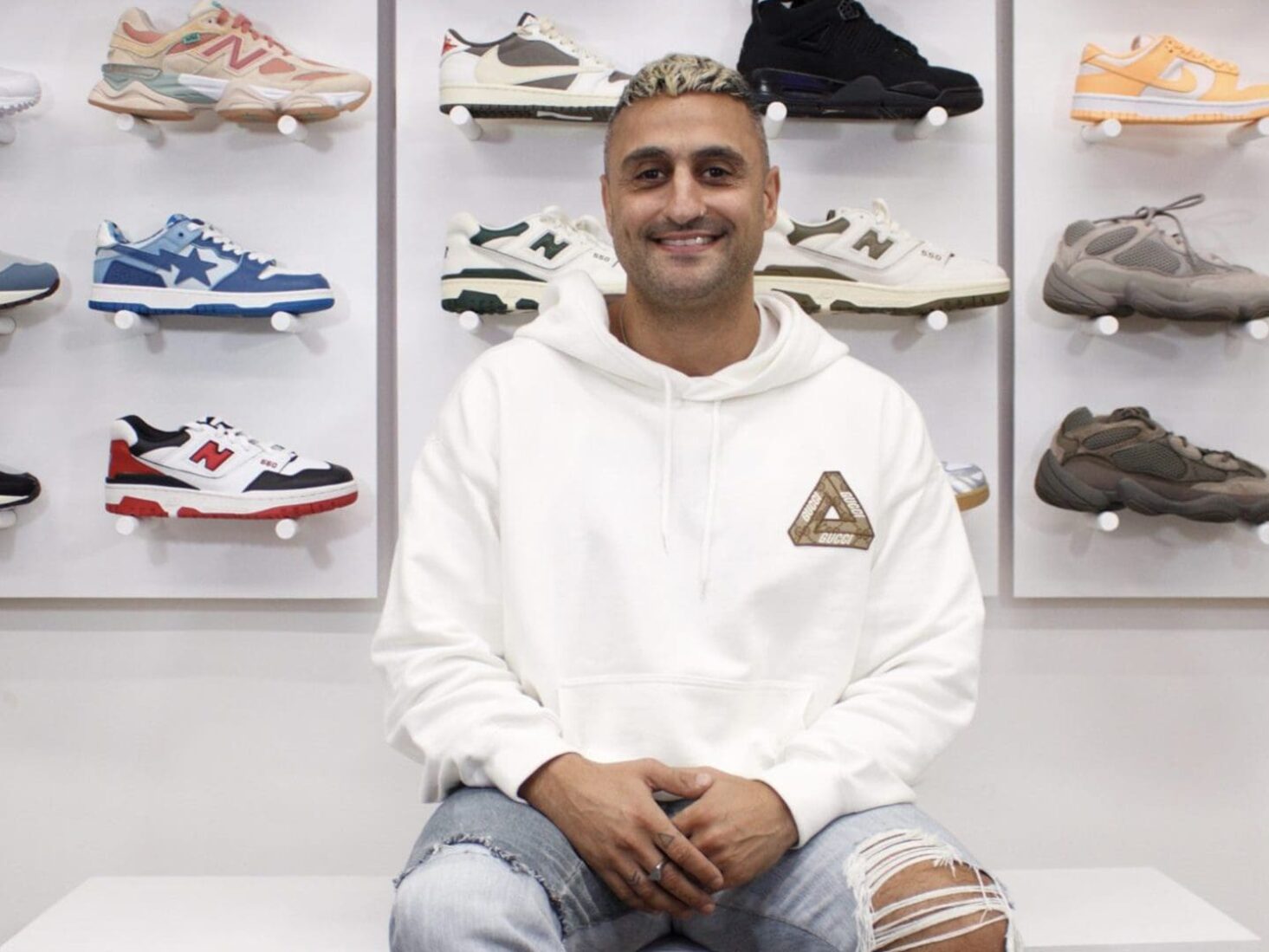
Meet Moses Rashid, founder and CEO of sneaker marketplace The Edit LDN
It’s attracted investment from NBA players and became the first reseller to be invited into Harrods. The business is not the first to treat trainers as an asset class, so what’s setting The Edit LDN apart?
Moses Rashid has a lot of trainers. Three hundred pairs to be precise. “But that’s my limit,” he laughs. “At 301, I force myself to sell a pair. It’s a way of keeping a lid on my collection.” Rashid is well-placed to move his old trainers on. Three years ago, he launched The Edit LDN from his bedroom. It’s an online platform that acts as a middle man between people buying and selling limited-edition sneakers. “Yeah,” he chuckles, “I’ll have to ask the team why we don’t call them ‘trainers’ – that’s a good point.”
It does good business. Rashid’s company handled something like 20,000 pairs of shoes last year, generating almost £10 million in revenue and witnessing year-on-year growth of 500 per cent. Rashid hopes that revenue will be closer to £100 million within three years. He points to the fact that the site has just raised some £4 million in seed funding, in part from New York Giants’ Xavier McKinney and P.J. Tucker of the Philadelphia 76ers.
More traditional investors, those who would perhaps be happier speculating on the FTSE 100 in a solid pair of brogues, might be dumbfounded at the very existence of such a lucrative market. But in the past two decades, sought-after shoes have gone the way of second-hand watches. They’ve become an asset class in their own right.
“I get that there are also people who just don’t understand how someone can spend £400 on a pair of sneakers,” says Rashid. “If you’re really deep into this world, it’s just your everyday norm.” Those who do appreciate The Edit LDN are the hardcore sneakerheads, big-name collectors with access to the latest, hottest styles. These people make a tidy living surfing a tide of hoopla and enjoying a healthy margin when they sell their latest must-have sneakers via sites like Rashid’s.
“These guys, and girls, don’t have just one pair to sell, they have hundreds,” says Rashid. “They have early access to products. They win sneaker raffles, or use ’bots, or buy within a very niche community ready to flip. Or, whisper it, they actually work for the sneaker brands themselves.”
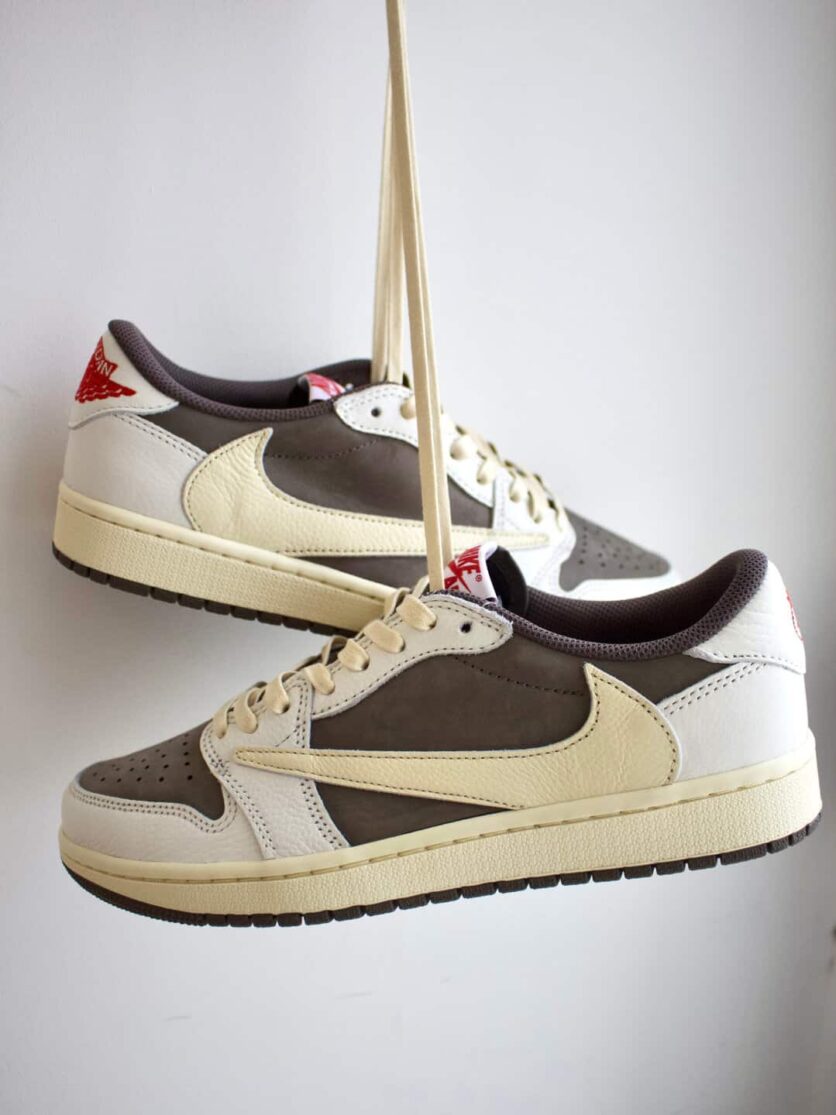
Rashid managed to get hold of six pairs of Louis Vuitton Air Force 1s three months before they were even released. “That’s something we can sell to high-net-worth clients,” he says. “There’s a very keen interest in getting new sneakers first.”
The typical The Edit LDN customer, says Rashid, will buy at least five pairs of trainers a month. The Edit LDN provides both low-level investors and major re-sellers with easy access to a huge audience. For buyers, there are reassurances regarding the product’s condition and authenticity. For every transaction, the company takes a cut.
“If you look at the type of people buying these sneakers now, they’re not just nerdy sneakerheads,” says Rashid, who, before his current venture, launched a digital recruitment agency 13 years ago aged just 25. “Sure, a lot of them are what you’d expect: 15 to 20-year-olds, living at home with their parents, but there are still people who are new to wearing sneakers. It cuts across age. In the US, especially, you’ll see middle-aged guys casually wearing a pair of [Air] Jordans. There are way more women really into sneakers now too.”
Trading in trainers is, of course, nothing new. Real-time online marketplaces, such as StockX and GOAT, mean that sneaker-obsessed teenagers no longer have to strike deals on street corners or over Instagram. What stands The Edit LDN apart, says Rashid, is service.
“The lightbulb moment for me came when I was at sneaker festivals buying sneakers and I’d be handing over 600 or 700 quid for a pair and the seller wouldn’t even have a plastic bag to put them in. That blew my mind,” he says. “It was clearly now a premium product but not a premium service.”
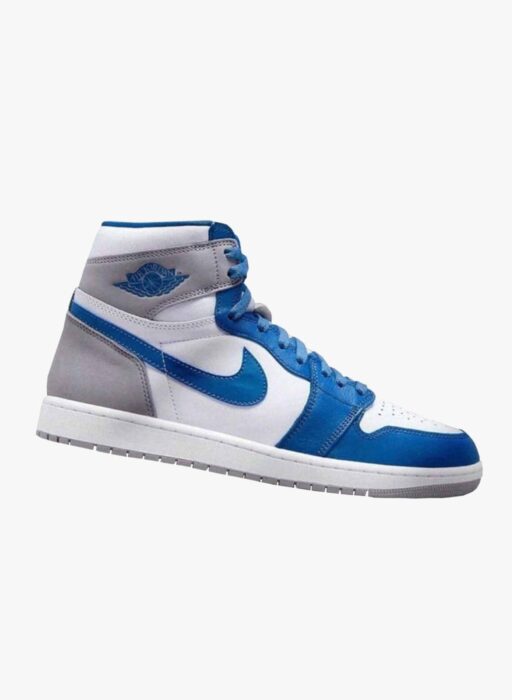
Nike Jordan 1 OG high sneakers in True Blue
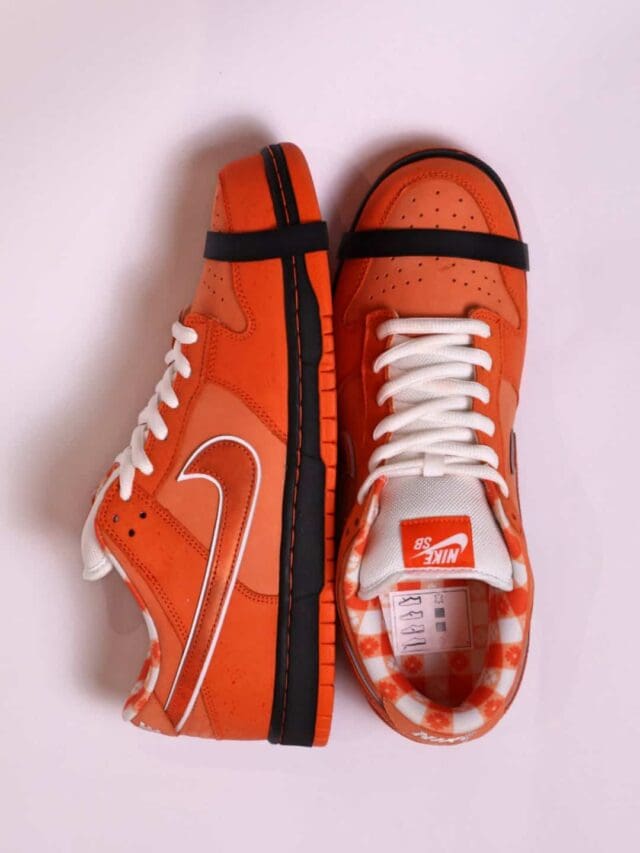
Nike’s SB Dunk Concept low sneakers in orange lobster
The average price of a pair of trainers sold on The Edit LDN is £360. But it’s not uncommon for a pair to sell for more than £15,000. “So customers don’t want a crappy experience,” says Rashid. The Edit LDN aims to be as meticulous about the condition of the packaging as it is about the sneakers inside. It’s also why the company offers same-day delivery within the M25. “Like me, our customers are the kind of people who are happy to pay a £100 premium to get their sneakers today.”
This year, The Edit LDN aims to roll out to five other countries, including the United States, where it has already signed promotional deals with the NBA, and with the Chicago Bulls in particular. The company has also managed to secure a selling space inside Harrods – the first reseller, in any industry, ever, to be invited into the prestigious Knightsbridge retailer. A similar deal has been struck with Harvey Nichols in Riyadh, Saudi Arabia. In London, Rashid runs special shopping nights for Premiership footballers and similarly well-heeled young sneaker fans.
Contrary to how the market used to run – when customers were only interested in trainers in box-fresh condition – the sneaker marketplace has followed the trends witnessed in the wider fashion world. ‘Second hand’ and ‘pre-owned’ are no longer dirty words. Rashid illustrates the shift in mentality by way of one pair he bought himself.
He paid £1,700 for a pair of Jordan 1 Trophy Rooms – one of 12,000 made. He could, he says, have re-sold them for £3,000. Instead, he chose to wear them for a year – “very lightly,” he stresses – and even then was able to sell them for £2,000.
“So, I still made £300 but got to wear them for a while. I have to wear my sneakers – I mean, to the gym, to walk the dog. Anywhere I go, I typically have what I think is a very cool pair of sneakers on. It’s great when you do see people wearing their sneakers, and I get the warm fuzzy feeling if we play a part in that. I really want to change the sneaker market for the better.”

That market, says Rashid, is only going to grow. Even still, it would be dangerous to build an empire on trainers alone. That’s why Rashid has expanded outside of footwear and into watches, clothes and handbags – products that inspire similarly feverish collecting.
All that said, £15,000 for a pre-worn pair of trainers? Really? Watches have an inherent value in that they are made of mechanical cogs and gears; internal workings that leave most of us baffled. What is driving the huge demand for factory-made trainers?
“Hype, of course,” says Rashid. “There’s an element of status-seeking, probably. But go right back to the very first Jordan shoes and there you’ll see culture turning into commodity – people queuing down the street to get hold of what’s an iconic piece of kit. Digital has just amplified that. Frankly, if a style is easy to get, for a lot of people, it just won’t have that desirability. For many, it’s still the thrill of the hunt.”
You know where to begin your search.
Visit theeditldn.com


